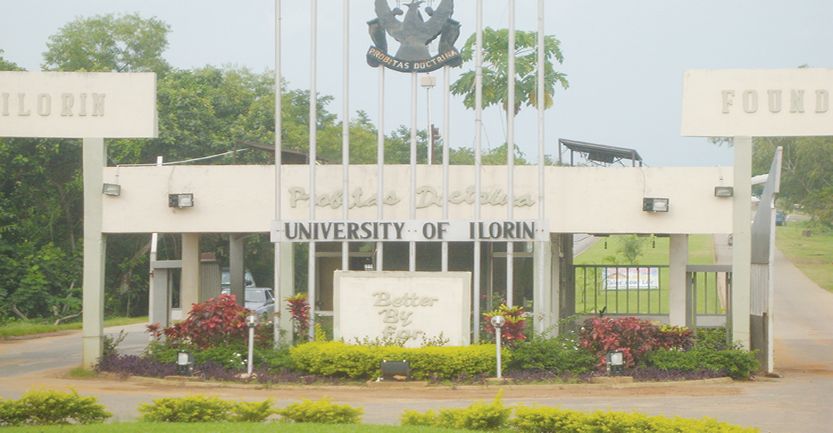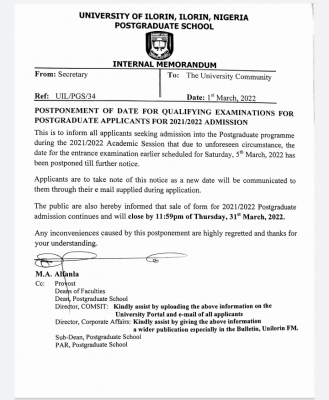
The Library and Publications Committee of the University of Ilorin has been mandated to come up with a proposal on the parameter for the objective assessment of academic publications which will factor in the impact of scholarly articles on the community and their relevance to the needs of scholars.
The Vice Chancellor, Prof. AbdulGaniyu Ambali, gave the directive on Thursday, August 22, 2013 while declaring open a workshop on the Parameters for Assessing Journal Articles for the purpose of promotion.
Speaking through the Deputy Vice-Chancellor (Research, Technology and Innovation), Prof. F.A. Oladele, the Vice-Chancellor noted that this is necessary to guarantee the quality of the research as well as the quality of the outlets of the research findings.
The Vice-Chancellor also pointed out that the proposal would enable researchers within and outside the country to have the right impression about research activities at the University of Ilorin.
While making his presentation at the event, the Dean of Postgraduate School, Prof. C.O. Bewaji, urged the University to create its own criteria for assessment of scholarly publications which will serve the specific needs of the University and those of sister institutions in the country.
Prof. Bewaji noted that the University should also pioneer a process that will capture all acceptable scholarly publication outlets in Nigeria.
According to him, India came up with a system called the Indian Citation Index (ICI), which captures all the recognised journals in the country because Eugene Garfield's ISI for Impact Factor did not capture all the quality articles generated from India.
Prof. Bewaji disclosed that the H-Index of the Publish or Perish (POP) software designed by Prof. Anne-Wil Harzing of the University of Melbourne, Australia, is the most acceptable assessment criteria on the globe at the moment and urged the academic staff to download the software for the purpose of self assessment.
The Professor of Biochemistry also observed that the reason for writing academic articles was not originally for the purpose of promotion but to make positive impact on the society.
In his remarks, the Chairman of the Library and Publications Committee, Prof. Y.A. Quadri, noted that the submissions of the academic staff during the interactive session revealed that the thinking of the academic staff was in consonance with the thinking of the Library and Publications Committee.
Prof. Quadri explained that the committee had invited the University management to the workshop in order for the management to feel the pulse of the academic staff on the issue of promotion exercise, which, he said, had assumed a controversial nature over the years.
While making his own comments at the event, Prof. L.O. Aina of the Department of Library and Information Science, posited out that the old method of assessment has to be modified while care should also be taken in adopting web-based analysis and assessment of journals.
He disclosed that the Committee was already working on a proposal which would factor in all observations.
In the course of the interactive segment, some participants noted that there are certain specialised fields where there are very few scholars and according to them, this poses great disadvantages as articles in such fields would not have the opportunity of attracting too many citations.
Others commentators also noted that while being prolific in terms of the number of journal articles is necessary, the number of publications may not be as important as the degree of impact a research has on the community.
Other dignitaries at the workshop included the Deputy Vice-Chancellor (Academics), Prof. R. A. Lawal; the University Librarian, Dr. J.O. Omoniyi; as well some Deans of Faculties.


